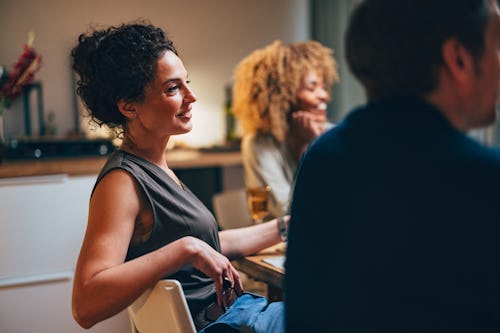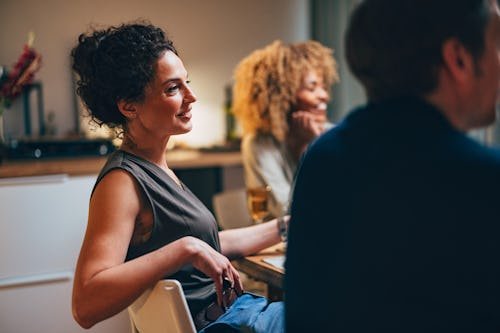
At 31, after a lifetime of trying to figure out what was wrong, I was finally diagnosed with hypermobility spectrum disorder. It’s a form of Ehlers-Danlos syndrome, a connective tissue disorder that basically means my joints lack the support they need to function properly. It has led to decades of chronic pain, and because there is no cure, I know I have the rest of my life to live with it in the same (hopefully not worse, but who knows) way. I also got diagnosed with fibromyalgia — essentially, when you have pain in your body continuously, as I have, your brain starts sending wonky pain signals more often, more intensely, and in parts of your body where nothing is physically wrong.
So, all of this to say, I’m in pain a lot. Like… every day, for most if not all of the day. It’s dismal to say but it’s true, and between parenting my 4-year-old son, working a full-time job, and trying to get to the gym (a crucial part of maintaining my functioning) a few times a week, I have exactly zero gas left in the tank to socialize. As an introvert, this honestly never bothered me. I love being alone, and genuinely think I could go months without socializing and feel perfectly fine. But fine isn’t the same as healthy, I learned.
Earlier this year, I took a class at the Mayo Clinic — I’m very lucky there’s one in my city — on fibromyalgia. It’s a confusing diagnosis and one that affects so many different systems of the body, so I needed to wrap my head around it. A lot of things the social workers teaching the class said stuck with me, but what they said about isolation changed how I socialize forever.
The 30-minute rule is simple: You must accept every social invitation you receive and go for at least half an hour.
They told the class that research shows social isolation carries the same health risks as smoking 15 cigarettes a day. People who were isolated or felt lonely chronically significantly increased their risk of stroke, heart disease, mental health disorders, and they even had shorter lifespans. Those of us in the room with chronic pain and fatigue were likely to find ourselves in that camp — it’s hard to say yes to the dinner invitation when you have the energy of a deceased slug, or make it to the baby shower when your bones feel like they’re on fire. Fibromyalgia itself wouldn’t kill me early, but staying home in pain all the time very well could.
While I might have chronic pain, I know I’m not the only one feeling absolutely wrung out. I have a feeling that many of us are just plain tired and not showing up to things as often as we used to, opting to stay in the comfort of our homes. But the declined invitations and missed events rack up. We start feeling isolated, yes, and we also drift from our communities, making it harder to reconnect when we do feel good. We’re not up to speed on the latest news everyone talked about in our absence. We might not get in on the plans made over dinner, or understand the new inside joke in the group chat the following morning. In the worst case, maybe future invites stop coming because it’s assumed we won’t show. So, our teachers gave us our marching orders: follow the 30-minute rule.
The 30-minute rule is simple: You must accept every social invitation you receive and go for at least half an hour. It’s enough time to show up, be seen, and have your presence registered by your community. You’re here, engaging, active. It’s also enough of an opportunity to lose yourself in a conversation or two. If you still feel like leaving after 30 minutes, you can go home — due diligence, done. But I am telling you now, as someone who will always be more comfortable and in less pain at home (it’s where the heating pads are), even I end up staying much longer 99% of the time.
Because, as introverted as I may be, we are human beings wired for connection. Whether I personally feel the need to make it to the wine bar on a Wednesday night and get the scoop on neighborhood drama, my brain and body benefit when I go. My literal longevity benefits, according to science.
What the 30-minute rule has really taught me is the importance of living my life even when I’m in pain. Being in community reminds me that I am not just someone who hurts. I make my friends laugh, I have an interesting job they ask me about, and I’m a good mom who always ends up in deep conversation with the other moms at the party about our latest kid-related joys and woes. So much of my mental real estate is populated by my illnesses. It’s when I’m among friends that I’m most aware of the other parts of my identity that actually matter so much more. And it’s a lot easier to ignore the nagging pain in my skeleton when there are good appetizers on the table and a girlfriend gasps and says, “Oh my God, I’ve been meaning to tell you…”
Disclaimer: This story has not been edited by us and is published as shown on Scary Mommy.


Leave a Reply